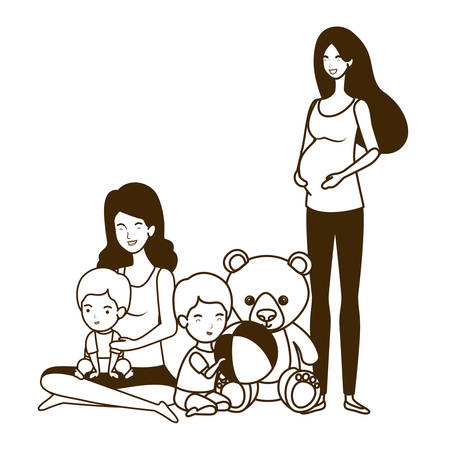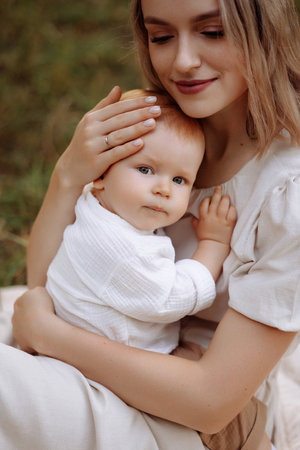1. Understanding Socialization in Toddlers
Socialization is a crucial part of a toddlers early development. It refers to the process through which young children learn how to interact with others, understand social norms, and build essential communication skills. During this stage, toddlers start observing, imitating, and engaging with people around them—especially parents, caregivers, and peers.
Why Is Socialization Important for Toddlers?
Early social interactions play a vital role in shaping a child’s emotional, cognitive, and behavioral growth. When toddlers engage with others, they develop key skills such as sharing, empathy, and problem-solving. These interactions help lay the foundation for future relationships and overall well-being.
Key Benefits of Early Socialization
| Benefit | Description |
|---|---|
| Language Development | Toddlers learn new words and improve communication skills by interacting with others. |
| Emotional Growth | They begin to understand feelings, express emotions, and build self-confidence. |
| Cognitive Skills | Engaging in play helps toddlers develop problem-solving abilities and critical thinking. |
| Social Norms | Toddlers learn important behaviors like taking turns, sharing, and cooperating. |
How Do Toddlers Experience Socialization?
Toddlers socialize in different ways depending on their environment and experiences. Some common ways they engage with others include:
1. Family Interactions
Their first social experiences come from parents and siblings. Everyday activities like talking, playing, and reading together teach them how to communicate and express emotions.
2. Playgroups and Daycare
Toddlers who attend daycare or playgroups get exposure to other children. This helps them practice social skills such as cooperation and sharing.
3. Imitation and Observation
Toddlers often observe adults and older kids to learn how to behave in different situations. They copy actions, words, and gestures they see around them.
2. Emotional and Cognitive Benefits of Early Socialization
When toddlers interact with others, they are not just playing—they are learning essential emotional and cognitive skills that will shape their future relationships and problem-solving abilities. Through early socialization, children develop emotional intelligence, empathy, and the ability to navigate social challenges.
How Social Interactions Build Emotional Intelligence
Emotional intelligence is the ability to recognize, understand, and manage emotions in oneself and others. When toddlers engage in playdates or group activities, they experience different emotions such as joy, frustration, excitement, or disappointment. These interactions help them learn how to express their feelings appropriately and understand the emotions of their peers.
The Role of Play in Emotional Development
Play is one of the best ways for toddlers to develop emotional intelligence. Whether they are sharing toys, taking turns, or resolving small conflicts, they are practicing essential emotional skills. Parents and caregivers can encourage this growth by guiding toddlers through social situations and helping them label their emotions.
Developing Empathy Through Early Socialization
Empathy—the ability to understand and share the feelings of others—is a crucial skill for building strong relationships. Toddlers begin developing empathy by observing how others react to different situations. When they see a friend cry or laugh, they start recognizing emotions in others and responding accordingly.
Ways Toddlers Learn Empathy
| Activity | How It Helps Develop Empathy |
|---|---|
| Pretend Play | Toddlers take on different roles, helping them understand different perspectives. |
| Storytelling | Hearing about characters feelings helps toddlers relate to real-life emotions. |
| Helping Others | Toddlers learn kindness when encouraged to comfort or assist a friend in need. |
Problem-Solving Skills in Social Situations
Toddlers often face minor social challenges—such as figuring out how to share a toy or deciding what game to play with friends. These situations provide valuable opportunities for problem-solving. By working through these small conflicts, toddlers learn negotiation skills, patience, and creative thinking.
The Importance of Guided Problem-Solving
Caretakers play an important role in helping toddlers navigate social difficulties without immediately stepping in to solve problems for them. Encouraging toddlers to talk through disagreements and come up with solutions builds confidence and independence in handling future challenges.

3. The Role of Play in Social Development
Play is a crucial part of a toddler’s social development. Through play, young children learn how to communicate, cooperate, and develop important social skills that will benefit them throughout life. Whether it’s a structured playdate, group activity, or free play with peers, these interactions help toddlers understand social cues, practice sharing, and build friendships.
The Importance of Playdates
Organizing playdates allows toddlers to engage with others in a familiar setting. These one-on-one or small group interactions help children practice taking turns, expressing their feelings, and resolving minor conflicts. Parents can facilitate these experiences by providing age-appropriate toys and encouraging positive interactions.
Group Activities for Social Growth
Enrolling toddlers in group activities such as music classes, storytime at the library, or toddler gymnastics introduces them to structured social environments. These activities teach children how to follow instructions, engage in teamwork, and become comfortable in group settings.
Shared Play and Cooperation
Toddlers learn best through shared play experiences where they must work together toward a common goal. Activities like building with blocks, playing pretend, or completing simple puzzles encourage cooperation and communication.
Types of Play That Promote Social Skills
| Type of Play | Social Benefits |
|---|---|
| Parallel Play (Playing next to another child) | Helps toddlers observe and mimic social behaviors |
| Associative Play (Interacting but not fully cooperating) | Encourages communication and sharing of materials |
| Cooperative Play (Working together toward a shared goal) | Teaches teamwork, problem-solving, and negotiation skills |
4. Parental and Caregiver Involvement
Parents and caregivers play a crucial role in shaping a toddler’s social development. By providing opportunities for interaction and modeling healthy social behaviors, they help children build essential communication and relationship skills. Encouraging positive social experiences at an early age sets the foundation for strong interpersonal connections in the future.
How to Encourage Positive Social Experiences
Creating an environment where toddlers can engage with others in a safe and supportive way is key to their social growth. Here are some practical ways parents and caregivers can foster healthy interactions:
| Strategy | Description |
|---|---|
| Arrange Playdates | Setting up regular playdates with peers allows toddlers to practice sharing, taking turns, and communicating with others. |
| Attend Group Activities | Joining community programs, such as storytime at the library or toddler music classes, exposes children to different social settings. |
| Encourage Cooperative Play | Providing games and activities that require teamwork helps toddlers understand collaboration and problem-solving. |
| Praise Positive Interactions | Acknowledging good behavior, such as sharing toys or using kind words, reinforces positive social habits. |
| Create a Safe Space for Expression | A supportive environment where toddlers feel comfortable expressing their emotions helps them develop confidence in social situations. |
Modeling Healthy Social Behaviors
Toddlers learn by observing the adults around them. Parents and caregivers can demonstrate positive social behaviors through their own interactions. Here’s how:
- Use Polite Language: Saying “please” and “thank you” regularly teaches toddlers basic manners.
- Show Empathy: Expressing understanding when someone is upset helps children develop compassion for others.
- Practice Active Listening: Giving full attention when speaking with a child or another adult models respect and communication skills.
- Resolve Conflicts Calmly: Handling disagreements peacefully teaches toddlers how to manage conflicts appropriately.
- Cultivate Inclusivity: Encouraging friendships with diverse groups of people promotes acceptance and open-mindedness.
The Long-Term Benefits of Early Socialization
The effort parents and caregivers put into fostering positive social interactions during toddlerhood has lasting benefits. Children who experience healthy socialization early on tend to develop stronger emotional intelligence, better conflict-resolution skills, and greater confidence in social settings. By actively engaging in their child’s social development, caregivers set the stage for lifelong success in relationships and communication.
5. Overcoming Challenges in Toddler Socialization
Helping toddlers develop social skills can sometimes be challenging, especially when they experience shyness, separation anxiety, or conflicts with peers. Understanding these challenges and finding ways to support your child through them can make a big difference in their social growth.
Addressing Shyness
Some toddlers take longer to warm up to new people or situations. If your child is naturally shy, forcing them into social interactions may backfire. Instead, try these gentle approaches:
- Start Small: Arrange playdates with one or two familiar friends instead of large groups.
- Model Confidence: Show enthusiasm when greeting others so your child sees that socializing is positive.
- Give Them Time: Allow your toddler to observe before jumping into play.
Managing Separation Anxiety
Separation anxiety is common in young children and can make social situations difficult. Here are some tips to ease the transition:
- Create a Goodbye Routine: A consistent goodbye ritual can help your toddler feel secure.
- Practice Short Separations: Start with brief periods apart and gradually increase the time.
- Acknowledge Their Feelings: Let them know it’s okay to feel nervous but reassure them you will return.
Navigating Conflicts with Peers
Toddlers are still learning how to share, take turns, and express themselves. It’s normal for minor disagreements to happen. Here’s how you can guide them:
| Common Conflict | How to Handle It |
|---|---|
| Toy Sharing Issues | Encourage turn-taking by using a timer or offering an alternative toy. |
| Pushing or Hitting | Calmly intervene, explain gentle touch, and redirect their attention. |
| Toddler Refusing to Play Together | Avoid forcing interaction; instead, engage in parallel play where they play side by side. |
The Role of Parents in Social Development
Your involvement plays a key role in helping your toddler navigate social challenges. Be patient, provide reassurance, and create opportunities for positive interactions. Over time, your child will gain confidence and learn essential social skills that will benefit them as they grow.


